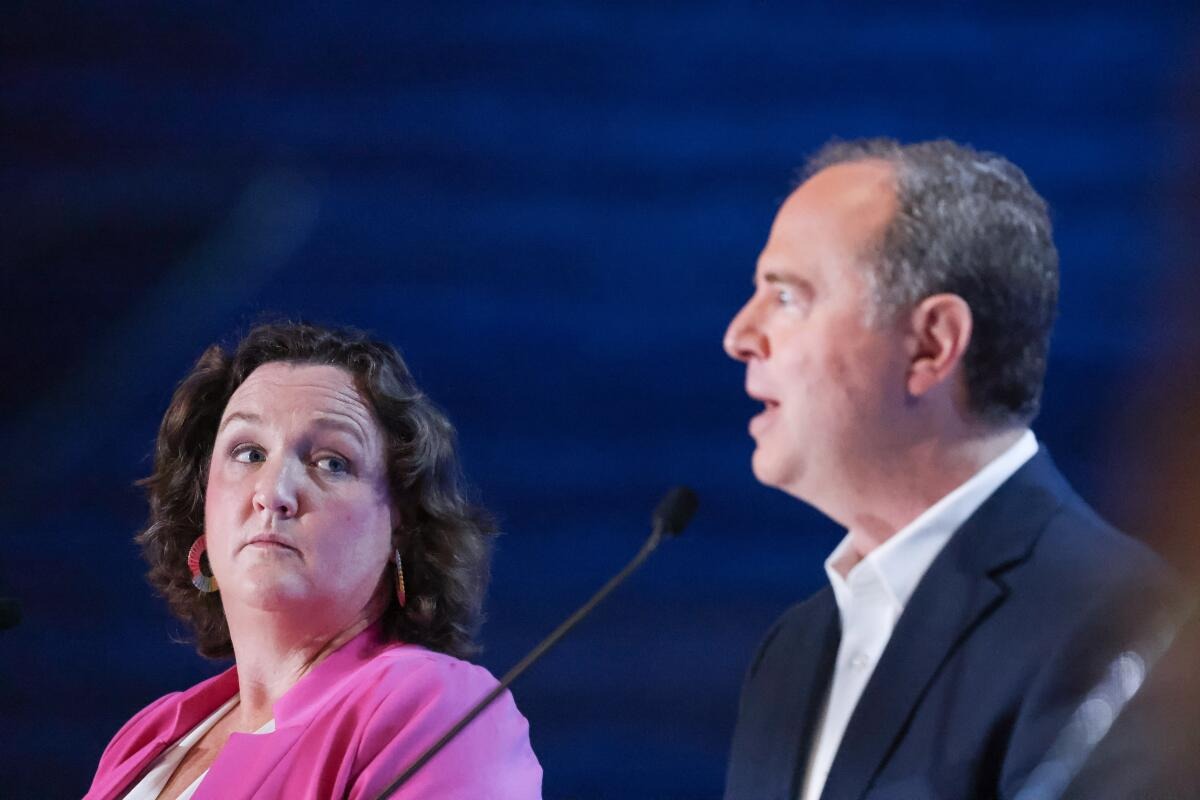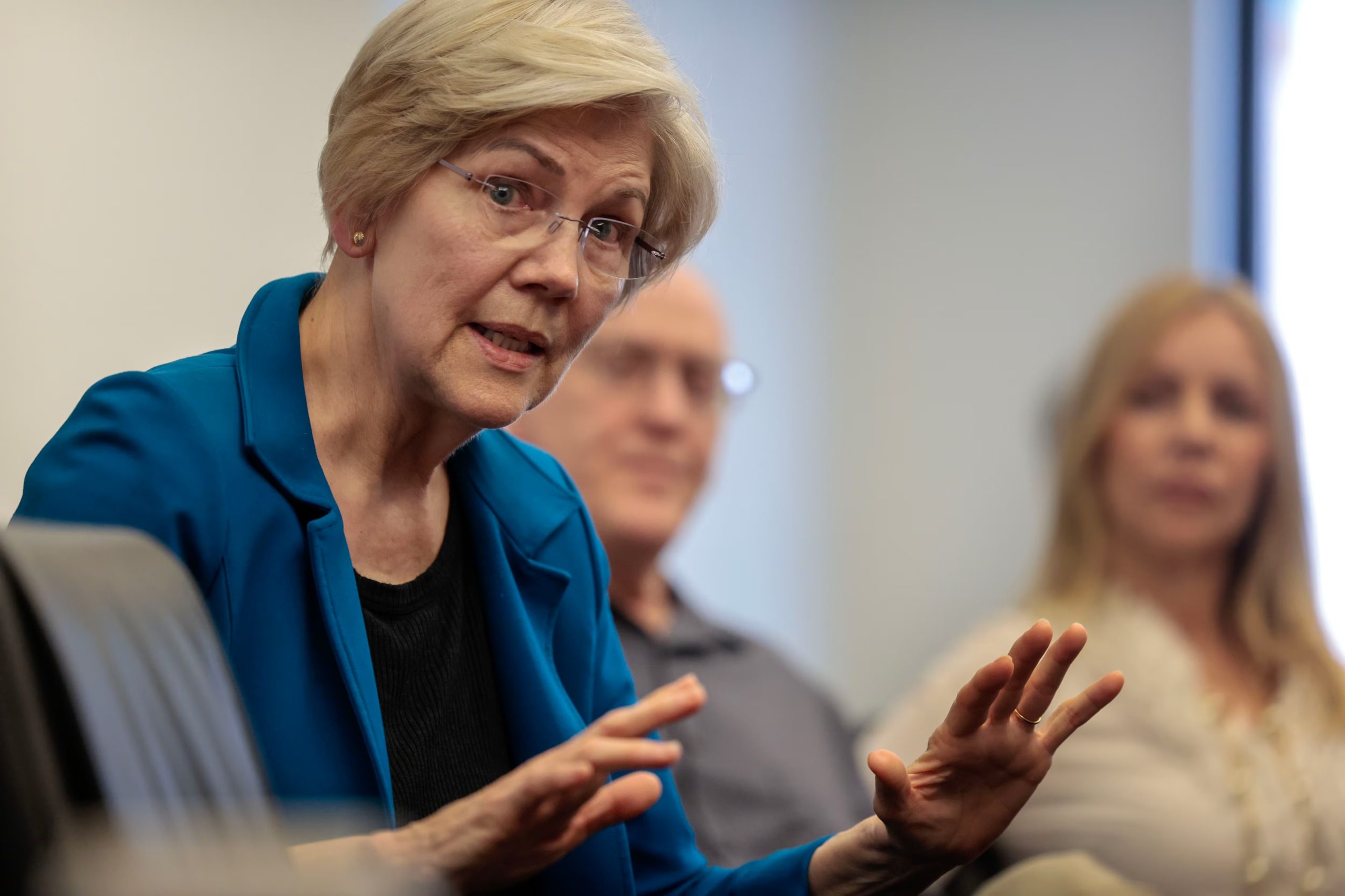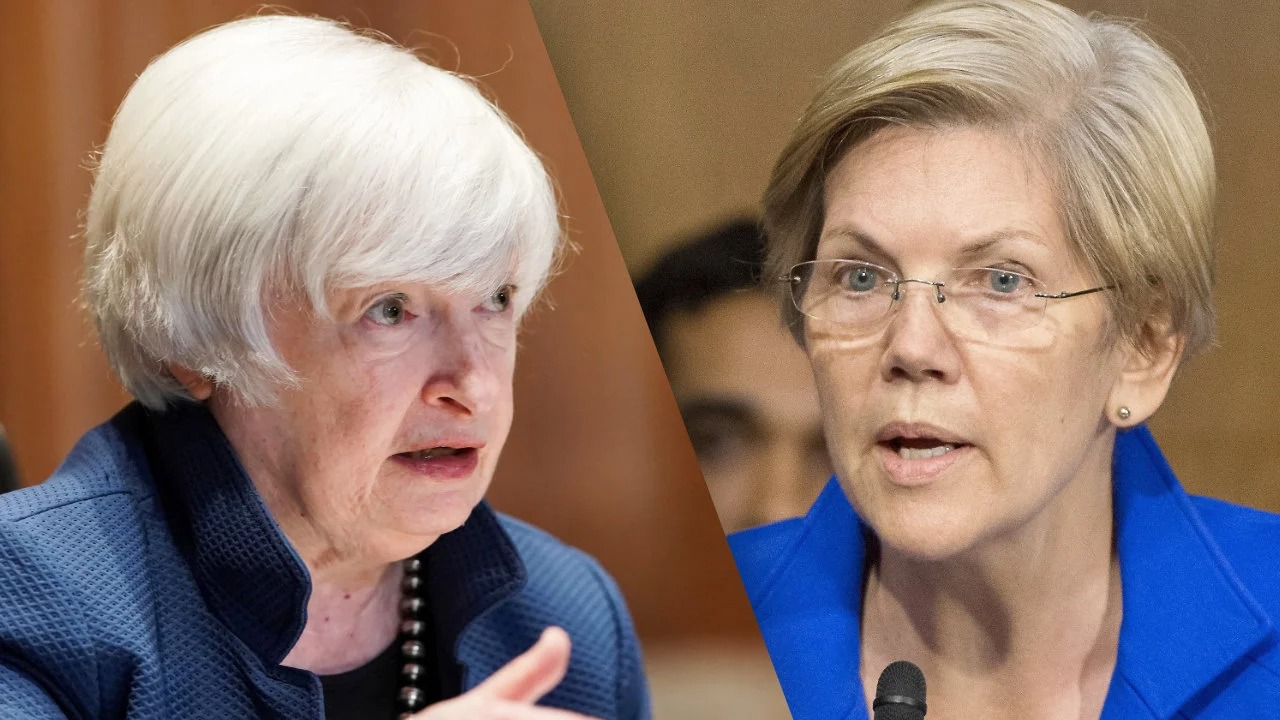In the California Senate primary lead-up, an influx of political ads targeted Rep. Katie Porter, depicting her as a fake, an actor, and a hypocrite.
These ads, which totaled $10 million in spending, were orchestrated by a super PAC called Fairshake, which was funded by cryptocurrency companies and their executives.
Fairshake aimed to influence the outcome of the Senate race by boosting candidates aligned with more favorable crypto laws while undermining those who opposed them.
Despite Porter’s alliance with Senator Elizabeth Warren, who is skeptical of cryptocurrency, Fairshake claimed credit for her third-place finish in the primary.

Cryptocurrency Executives (Credits: Vox)
Porter attributed her loss to the significant financial backing received by her opponents, referring to it as “an onslaught of billionaires spending millions to rig this election.”
This incident marks the return of the cryptocurrency industry to the political sphere, leveraging its substantial financial resources to shape electoral outcomes in the 2024 election cycle.
The Securities and Exchange Commission’s stance on cryptocurrency regulation, likening it to stocks and bonds, has prompted pushback from the industry, which advocates for more favorable regulations under the Commodity Futures Trading Commission.
Fairshake’s involvement in the Senate primary underscores the industry’s intent to influence policy decisions in its favor. While Fairshake emerged as the largest spender in the Senate primary, its impact remains debatable.

Cryptocurrency Executives (Credits: Bitcoin.com News)
Some argue that Porter’s loss was influenced by various factors, including the campaign strategies of her opponents and the support she received from prominent Democratic figures like Speaker Emerita Nancy Pelosi.
Despite Porter’s defeat, the outcome of the Senate race is yet to be determined, with the top two candidates advancing to the November election regardless of their political affiliation.
The significant role cryptocurrency interests play in this race highlights the industry’s growing influence in shaping political dynamics and policy discussions.
Cryptocurrency companies like Coinbase are actively engaging with policymakers to advocate for regulatory frameworks that support innovation while addressing consumer protection and national security concerns.
As the industry continues to exert influence, candidates’ positions on crypto-related issues are becoming increasingly significant in electoral contests.























